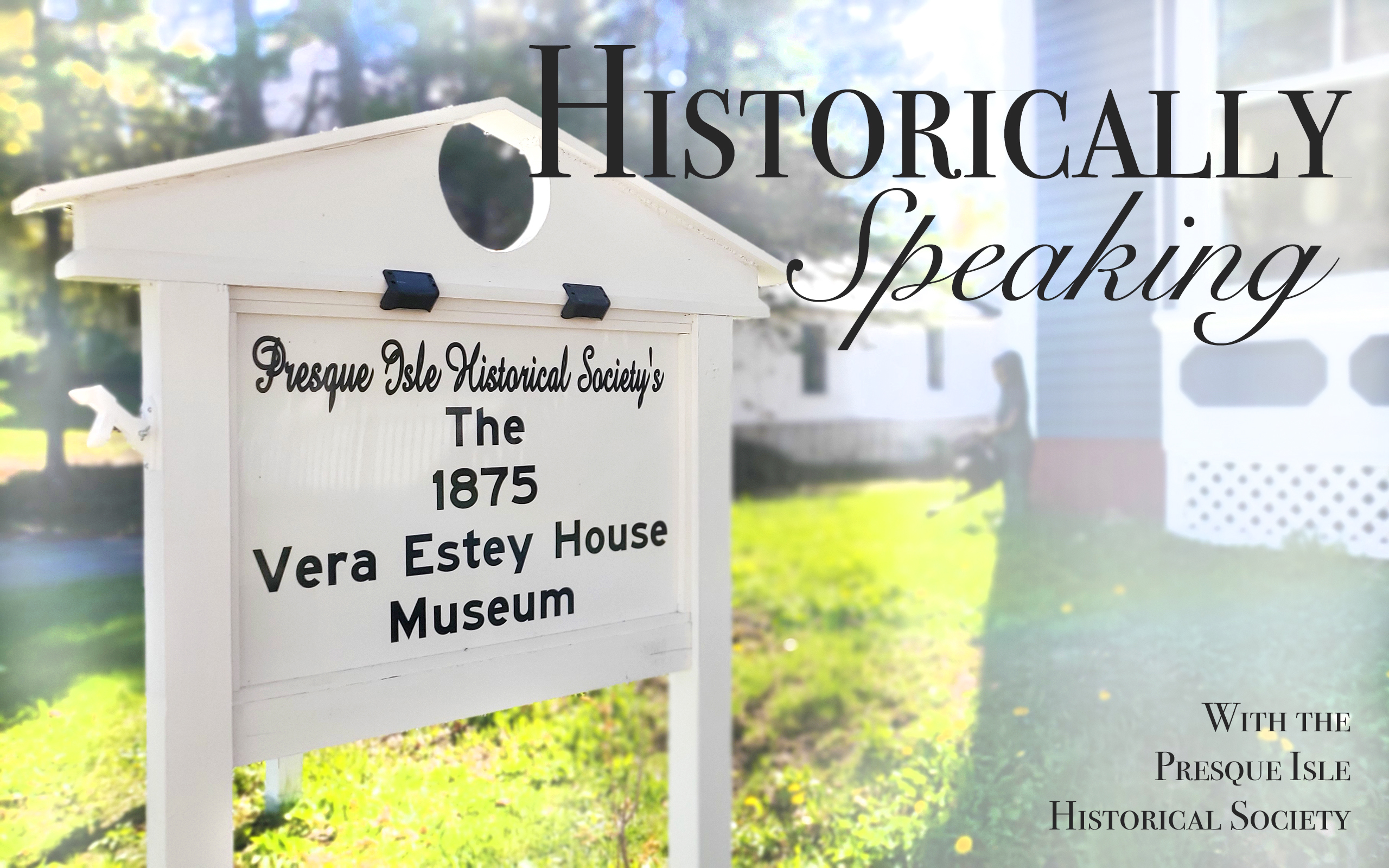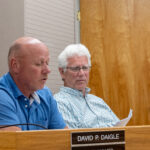“Mooseleuk” is the name of both a lake and a mountain. Did you know that early Presque Isle also had a men’s group known as the Mooseleuk Club?
Mooseleuk is a loose translation of an Abnaki word meaning “moose feeding place.” The Mooseleuk Club was organized in 1900 and incorporated in 1919. It was formed as a gathering place for social enjoyment and even to buy, sell or exchange real estate. The club was known for being “promoters of clean sport” and members were local business men, farmers, and horsemen.
Members at the time of incorporation included well-known names like Crandall, Estey, Graves, Hardy, Johnston, Perry, Phair, Stevens, Thompson, Wieck, and more. The group voted in 1919 to limit membership to 150 members. This was later amended to read that there was no limit on resident members.
It seemed anyone who was anyone in town was a member, and membership grew by leaps and bounds. Meetings were held the first Wednesday of every month with an annual meeting and election of officers in January.
To join, a gentleman had to be at least 21 and had to complete a membership application which was voted on by secret ballot. You had to be a resident living within the town limits for three consecutive months to be considered a resident member. A non-resident was anyone who lived outside of Presque Isle for one year continuously. If a non-resident desired to become a resident member, the gentleman had to reside within the town limits for six consecutive months.
For resident members, the initial fee to join was $15 with regular monthly dues of $1.25 plus war tax (keep in mind that World War I did not officially end until August 1920). You would cease to be a member if your dues remain unpaid for three months.
Non-resident members paid $10.00 per year. A key to the club required a 25-cent deposit which was returned when the key was brought back.
Much can be learned about society at the time by examining the rules of the club. No games were to be played on Sundays. You could also be kicked out of the club for ungentlemanly conduct within club rooms, transgression of the rules, behavior that would reflect badly upon the club, “coarse” language, noisy or quarrelsome behavior, gambling (except for pool and bowling), and drinking intoxicating liquor.
Society at that time blamed the consumption of alcohol on issues such as domestic violence and child abandonment. The 18th Amendment to the US Constitution, ratified on January 16, 1919, prohibited the manufacture, sale and transportation of intoxicating beverages. It did not, however, outlaw the possession or consumption of alcohol in the United States. Prohibition lasted until the ratification of the 21st Amendment on December 5, 1933.
The club rooms were in the old Marston building on Main Street and boasted a dining room, poolroom, bowling alley and a fireplace. The bowling alley was in the basement and the meeting rooms were on the second floor.
Each member carried his own key, but had to know the secret password, “Tombstone Thompson,” to gain entry. Frank “Barney” Thompson owned the Memorial Works, which made tombstones, for many years. One of the founding members of the Mooseleuk Club was a Thompson.
The group had other entertainment as well. There is note in the minutes of a local gentleman bringing in a phonograph for everyone’s entertainment. Bridge tournaments and annual picnics were also held.
One “hot” topic of discussion was allowing a ladies’ night. This discussion seemingly went on for years. Notes can be seen bringing it up as early as February 1920. Ladies Night was finally designated as the third Tuesday of each month in June 1929.
Perhaps one of the most noteworthy contributions of the Mooseleuk Club was the purchase of the harness horse John R. Braden. The popularity of harness racing at the Northern Maine Fair was at an all-time high in the 1920s. Groups from Caribou and Houlton had also purchased competitive horses.
The little farm horse, already several years old, was purchased in Tennessee for $4,010 and brought to Presque Isle. Braden ran his first race here on July 4, 1921. And yes, our movie theater is named after the horse.
General meeting minutes do not reflect any discussion of purchasing Braden, his earnings, or paying dividends. In fact, the only mention of Braden in the general membership meetings from 1919 to 1930 are in the minutes for April 6, 1921, when a vote was passed “to allow John R. Braden to race under the auspices of the Mooseleuk Club.”
Braden’s winnings were deposited to a special account of the club. Over the course of his career, Braden won over $48,000. The Mooseleuk Club donated part of the horse’s winnings to charities, including the Anti-Tuberculosis Association.
The Mooseleuk Club decided that “Uncle” John Willard would be Braden’s driver. Willard was already 65 when he began to drive Braden. He drove the horse in 56 races, of which he won 46. Willard retired from racing in 1935 and passed away in Bucksport in 1947.
Another notable contribution was the formation of another popular local club. At a Mooseleuk meeting in 1947, the Presque Isle Fish & Game Club was established, replacing the old Aroostook Valley Fish & Game Club.
Kimberly R. Smith is the secretary/treasurer of the Presque Isle Historical Society.








